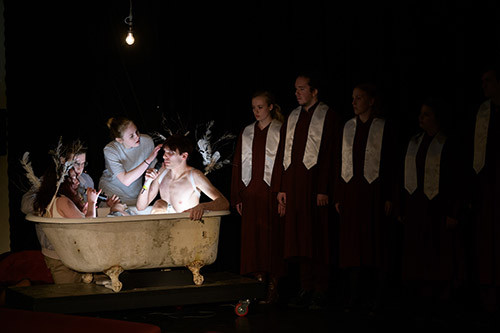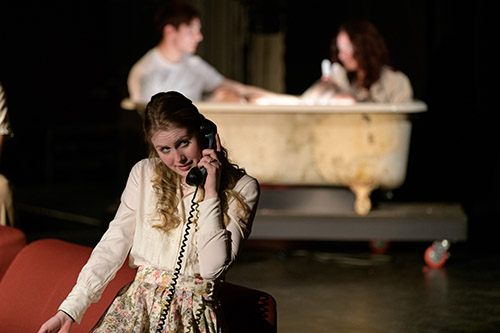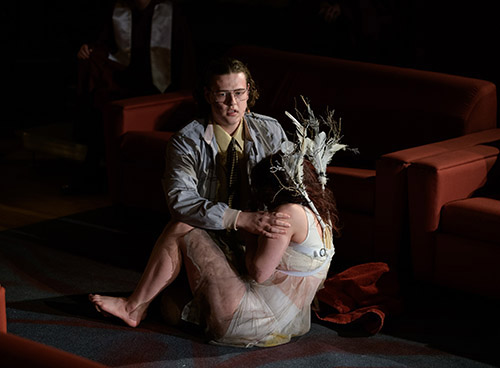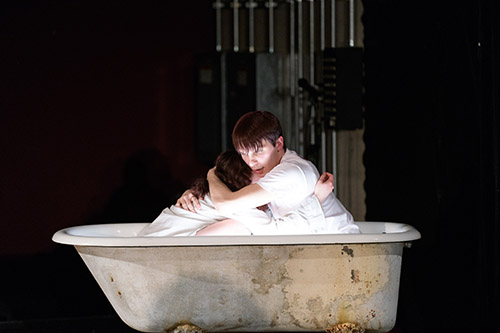by Nicholas Stevens

Set designer Laura Carlson-Tarantowski makes the most of the small space, placing a bathtub on the platform, a mockup of a suburban living room on the right, and the chamber orchestra flanking a doorway to the extreme left. Matthew Chamberlain directs the ensemble from the back of the room, achieving seamless coordination in a piece that could easily skew chaotic.

From this point, the story plays out over a continuous 80-minute span. Mr. X.E. (Shawn Roth) discovers a pair of angels who have landed in his compost heap, a “boy” (Nicholas Music) and a “girl” (Chloe Falkenheim). Having returned to earth to revisit mortal pleasures, the pair huddle in the bathtub. The violence begins when Mrs. X.E., spotting a commercial opportunity in all those divine feathers, hands Mr. X.E. the knife and commands, “Prune them.” To say that the scene that follows is gut-wrenching is to risk understating the true impact of this moment, which finds the chorus breaking sticks and shrieking while the angels sob. Eventually, the divine creatures escape with the help of the regretful Mr. X.E. His wife, thinking only of herself to the end, resolves to sell a twisted version of her story to the media.

Christopher Mirto, Oberlin’s Assistant Professor of Opera Theater and the director of the production, has clearly shared an unflinching vision with these incredible singing actors, and found a way to conjure hellish magic with a handful of willing collaborators, a team of dramaturgs, and a bit of scenery in the seating area of a college coffeehouse. Though her pieces appeared only briefly, video designer Hannah Sandoz contributed a feverish, unnerving layer of additional images. Under Chamberlain, the ten-person orchestra tore into Du Yun’s evocative score with virtuosic intensity. Guitarist Steve Fazio and cellist Annika Krafcik wove webs of sound in expertly handled solo turns, and overall, the group sounded much stronger and lusher than its numbers might imply.

Photos by Yevhen Gulenko.
Published on ClevelandClassical.com February 6, 2018.
Click heref for a printable copy of this article


